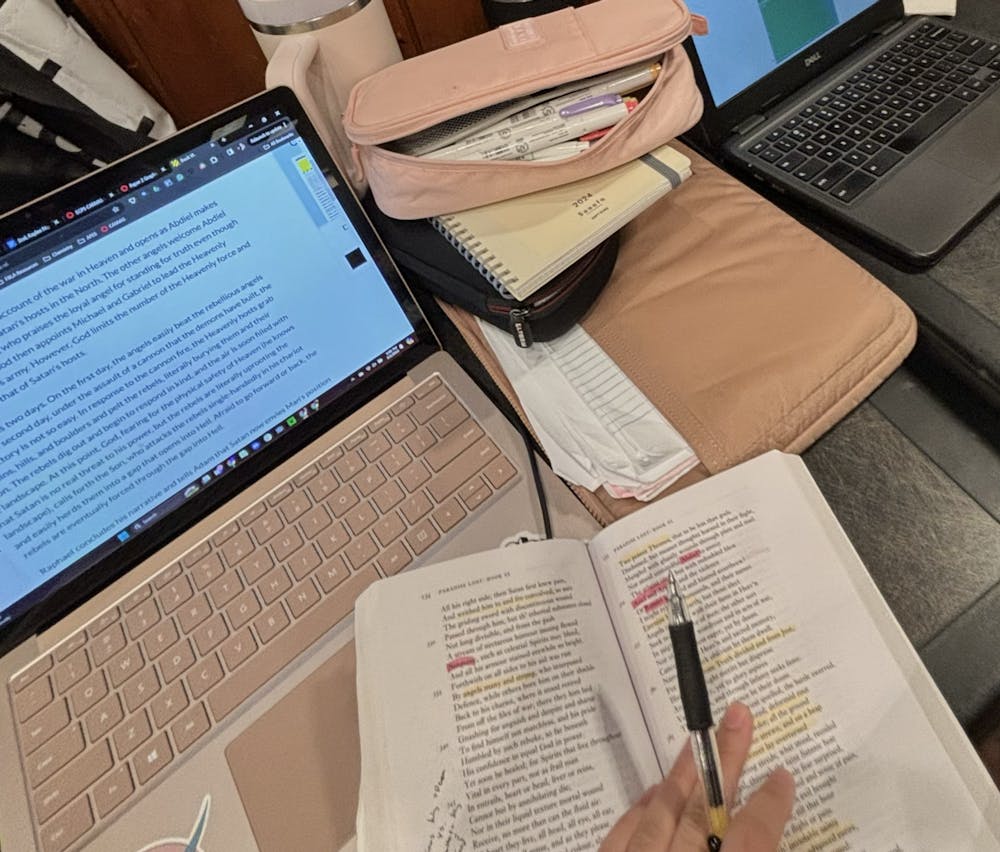
When I first began writing, I had an unfathomable obsession with imagery. For hours, I would park myself at my favorite table at Barnes and Noble with my latte in hand and write pages upon pages of descriptions. Taking in the senses around me, I’d let my mind wander to places that I could only dream of.
Armed with my laptop and an insatiable amount of ego, I would allow my fingers to command the rise and fall of imaginary nations. I called forth armies in extensive battles between fairies and danced across rooftops into the night with thieves running from the law. I prided myself the most on my ability to paint pictures with words and to create worlds from blank pages on a screen. Here, I am an artist, and my readers’ minds are the canvases. Little did I know that I would soon forfeit my title as the number one logophile.
Then again, that isn’t entirely true. Transforming from a writer to an apt author is a process that takes eons of dedication. When I decided to take writing seriously by beginning my first novel and publishing short stories, it broke my heart to sacrifice my pages of paintings. So long to the hours of creation where I lost myself to the music that blasted through my headphones. Goodbye to the worlds that I spent sleepless nights inventing. Hello to my worst enemy, character dialogue.
Whether it’s practicing piano, sketching or any other artistic medium, the phrase “practice makes perfect” plagues all creatives. Dedicating yourself to creation by pursuing it until you master every technique seems like a viable goal until you realize that perfection is unattainable. Every artist – from the most novice to the most adept and accomplished – has something new to learn (even if they don’t realize it yet).
I lamented the loss of time. No longer could I dance around writing plots, forgo character arcs for dramatic scenes and indulge in whimsical tangents. Now, every word counted, and every moment had to drive the story forward. There was no room for the creative abandon I once cherished. However, the more I wrote, the more I became well-versed in the realm of storytelling.
In terms of creative writing, the more I practiced, the more I learned the importance of literary techniques. I found myself uncovering the secrets of Chekhov's gun, throwing my characters into paths set by the hero’s journey and heightening tension through “in media res”. I began to understand how symbolism could add layers to my stories, how metaphors could convey unspoken emotions and how irony could twist expectations. Every device became a tool to sharpen my storytelling, transforming scattered ideas into a cohesive and compelling narrative.
When I stepped foot into my first creative writing class at Hopkins, I found myself rediscovering my love for exposition. Reading the workshop pieces from my peers, I became acutely aware of how much my writing changed. From my friends, I read scenes where emotions were at the forefront of the narrative. I could feel their passion for writing through their imagery, and it made me reminisce about my adoration for losing myself to description.
While completing exercises and assignments for Introduction to Fiction and Poetry, I found myself struggling to write scenes that flowed flawlessly from my fingers. My stories were fast-paced and written with conviction rather than feelings. In my journey to establish purpose in my narratives, I realized I lost sense of what I was once so keen to do. Because I am finally given the opportunity to slow down, I feel my passion for pictures coming back to me. The days of my authorial past are slowly emerging once more, and my love for writing rounding out the skills that I have gained over these years.
In the end, my journey as a writer has come full circle. While I once mourned the loss of my artistic freedom in favor of structure, I now realize that storytelling is about balance — between description and dialogue, between world-building and character development. I haven’t abandoned the painter in me; instead, I’ve learned to use my brushstrokes more purposefully. Now, when I write, I don’t try to create just artistic scenes — I create stories that juggle artistry and meaning.
Kaylee Nguyen is a freshman from Pensacola, Fla. studying in Molecular & Cellular Biology and Writing Seminars.





